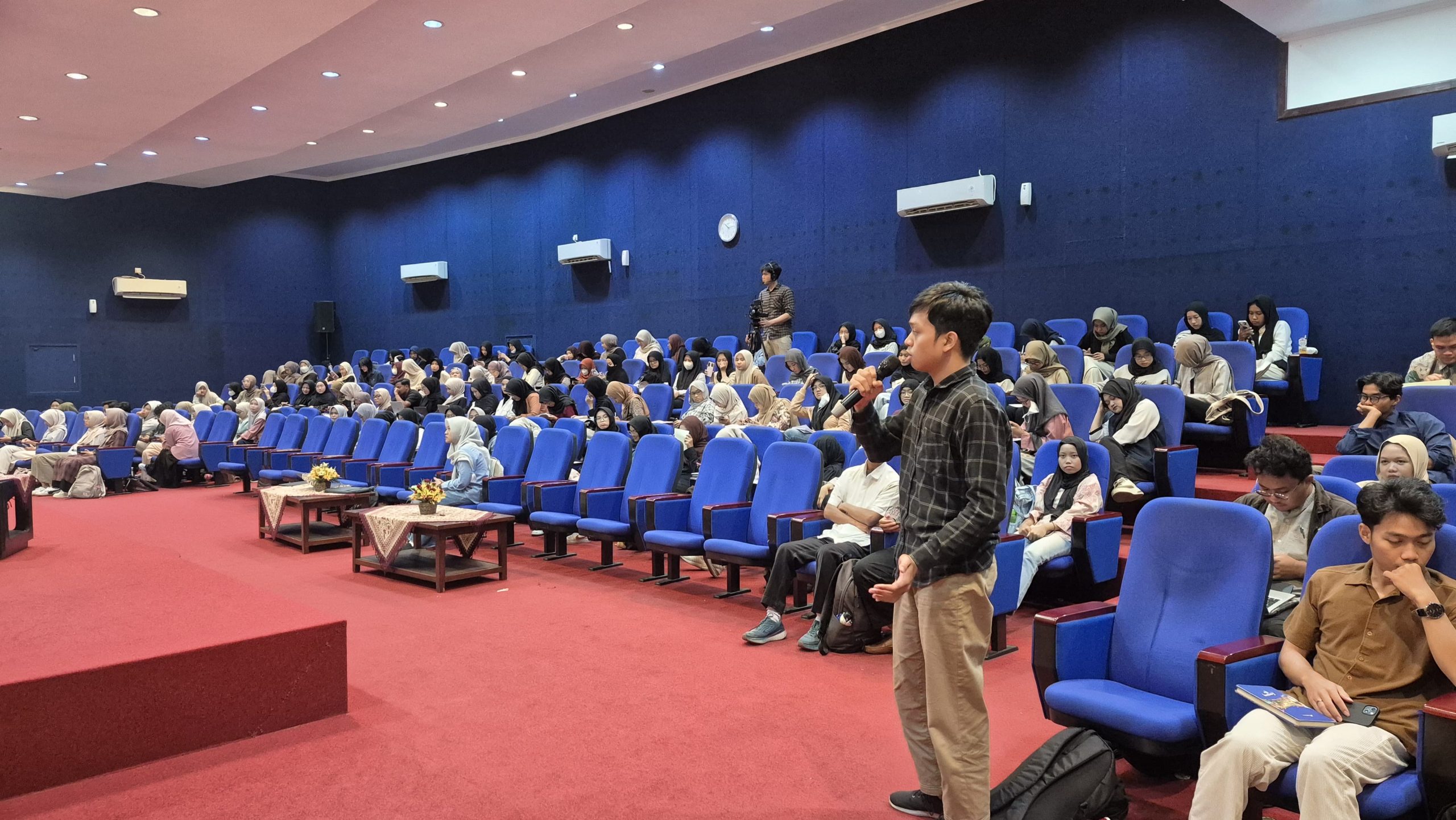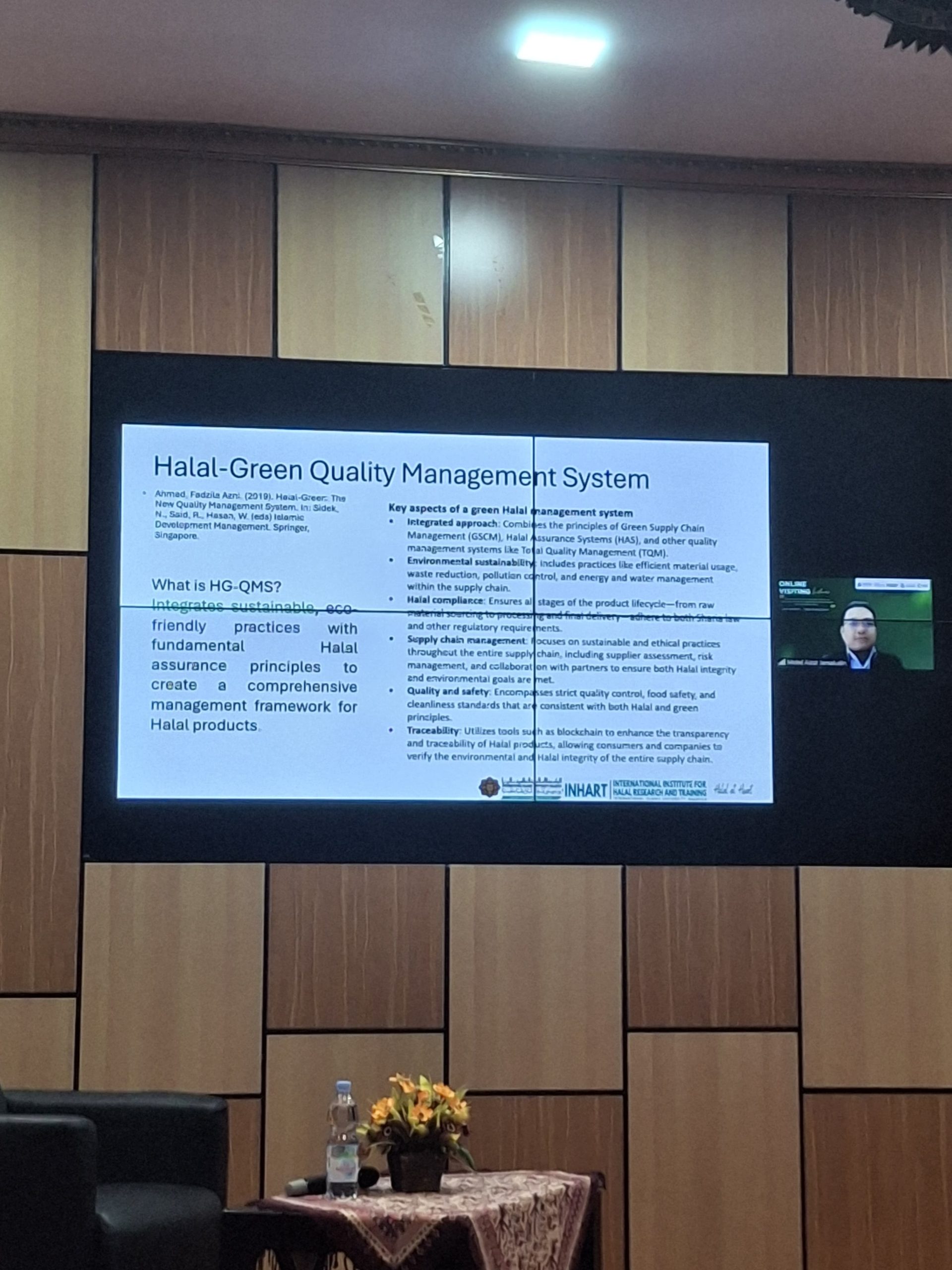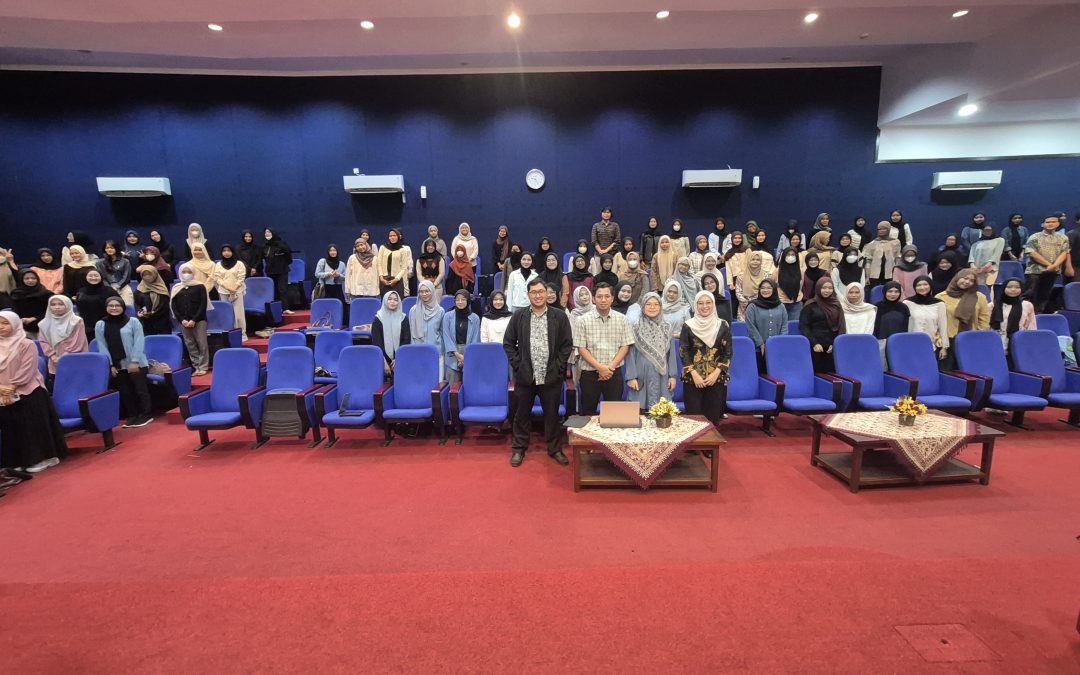Semarang, November 18, 2025 – The Islamic Economics Study Program, Faculty of Economics and Business, Universitas Diponegoro, held another session of its Online Visiting Lecture (OVL) with the theme “Building Islamic Economics Students’ Literacy and Competence through the Understanding of Halal Standards and Global Supply Chains.” The event featured international speaker Assoc. Prof. Dr. Mohammad Aizat Bin Jamaludin, Associate Professor and Head of the International Institute for Halal Research and Training (INHART), International Islamic University Malaysia (IIUM).
This hybrid event took place both offline at Hall C, 4th Floor, Building C FEB Undip, and online via Zoom Meeting from 08.00 to 12.30 WIB. The lecture was moderated by An’im Kafabih, S.E., M.E., Lecturer of Islamic Economics at Universitas Diponegoro.

Strengthening Halal Standards Literacy for Islamic Economics Students
During the main presentation, Dr. Aizat elaborated on why halal standards are an essential issue within Islamic economics. Halal is not only associated with Shariah compliance but also encompasses safety, quality, ethics, and market competitiveness. His lecture covered the following key points:
- Why halal standards matter in Islamic economics
- The global growth of the halal economy
- The definition and scope of halal standards
- International halal standardization bodies
- Fundamental halal principles
- The concept of the halal supply chain
- Structure of a halal supply chain
- Challenges in global halal supply chains
Dr. Aizat underscored that the term halal does not merely mean “permissible,” but must also be thayyib good, safe, and not harmful. One of the slides showed a three-circle diagram illustrating the integration of Shariah Compliance, Ethics, and Safety & Quality, which collectively form the foundation of the halal assurance system. These three components play a pivotal role in building consumer trust and enhancing the competitiveness of the global halal industry.

The Growth of the Halal Economy and Global Supply Chain Challenges
Dr. Aizat also highlighted that the halal economy is one of the fastest-growing sectors worldwide, spanning food and beverages, cosmetics, fashion, Islamic finance, pharmaceuticals, and more. Despite this rapid growth, various challenges remain.
In discussing the Global Halal Supply Chain, he emphasized the need to ensure halal integrity throughout the entire value chain from sourcing and production to logistics, storage, and distribution. Major challenges faced today include inconsistent standards across countries, lack of regulatory harmonization, and issues related to trust and transparency across borders.
Halal-Green Quality Management System (HG-QMS)
One of the important frameworks presented was the Halal-Green Quality Management System (HG-QMS) a management approach that integrates halal assurance principles with environmental sustainability. The system highlights the importance of:
- Using eco-friendly and sustainable materials
- Effective waste and pollution control
- Energy efficiency and resource management
- Integrating halal assurance principles throughout the supply chain
- Strengthening traceability, including the use of blockchain to enhance transparency
HG-QMS is seen as a modern solution for industries as global consumers now demand not only halal-compliant products but also sustainable and environmentally responsible ones.
Enhancing Student Competence in Halal Economics
This lecture served as a valuable learning platform for students to deepen their understanding of the role of halal standards in contemporary economic systems. Beyond theoretical insights, students were encouraged to explore strategic issues such as supply chain transparency, the role of halal certification bodies, and the influence of halal standards on global economic dynamics.
Moderator An’im Kafabih emphasized that halal literacy is a future-critical competency for Islamic Economics students. As the global halal industry continues to expand, graduates must be prepared to contribute to sectors such as food production, cosmetics, halal logistics, quality management, and Shariah compliance.
Strengthening Undip’s Position in Islamic Economics Education
The 2025 Online Visiting Lecture was enthusiastically attended by Islamic Economics students of FEB Undip. Through this program, students are expected to gain a stronger understanding of halal standards and challenges within global supply chains, enabling them to incorporate Islamic perspectives into sustainable economic development.
The Islamic Economics Study Program remains committed to consistently inviting international academics and practitioners to enrich students’ knowledge and strengthen Universitas Diponegoro’s position as a leading center for Islamic economics education in Indonesia.

